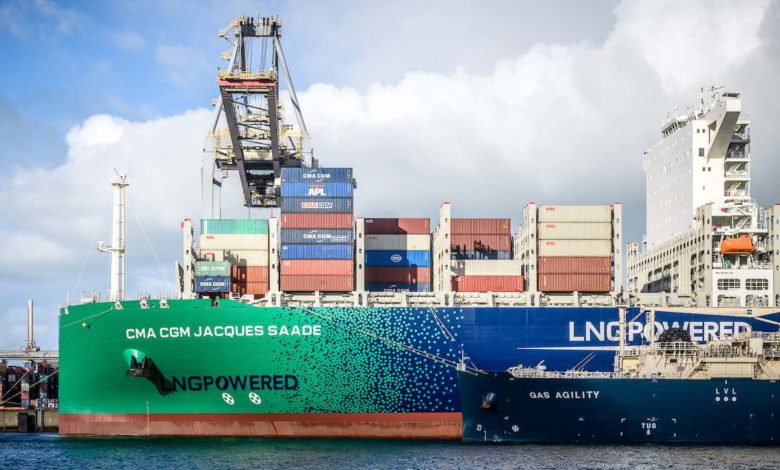Will emissions pledge sound the death knell for LNG as a fuel?

If you’re a top 10 carrier you will rely on the likes of Amazon, Ikea and Unilever for a very considerable chunk of your business. In one fell swoop you will have become acutely aware yesterday that you can no longer invest in pricey LNG-fuelled ships that ought to be trading for a lifetime of 25 years.
Some of the world’s largest shippers came together on Wednesday, just days away from the major international climate summit, COP26, vowing to progressively switch all of their ocean freight to vessels powered by zero-carbon fuels by 2040.
Amazon, the world’s biggest online retailer, Ikea, the world’s largest furniture retailer, Inditex, the world’s biggest clothing retailer along with consumer goods giant Unilever, tyre manufacturer Michelin, Tchibo, one of Germany’s largest retail chains, Patagonia, Brooks Running, and FrogBikes are the first signatories to a 2040 ambition statement facilitated by Cargo Owners for Zero Emission Vessels (coZEV).
Importantly, the signatories have committed to absolute zero emissions on a full lifecycle greenhouse gas emissions counting basis in contrast to net zero emissions, thus ruling out carbon offsets.
So these giants of the retail world, many of whom in recent months have come under very public pressure about their shipping carbon footprints from well publicised NGO stunts, they are all now telling their liner partners that all of their cargoes must be moved on ships that do not use fossil fuels in just 19 years’ time.
Where container shipping leads on environmental matters, other segments tend to follow. How soon before car manufacturers and miners feel like they ought to issue similar directives to their PCTC and dry bulk partners, for instance?
Dr Nishatabbas Rehmatulla, principal research fellow at the UCL Energy Institute, who helped come up with the groundbreaking coZEV initiative, summed up shipping’s changed green reality in a post on LinkedIn yesterday in which he noted: “In case it wasn’t clear: the signatories have gone for zero GHG emissions on a full lifecycle GHG emissions accounting basis. The International Maritime Organization should take note as it discusses mid-term measures and rules around zero emission fuels, anything lower or different will create risks for carriers/shipowners but create opportunities for early movers.
Rehmatulla went on to add: “It was easy for the consumer-facing brands to call a spade a spade and write off LNG, it’s a fossil fuel and does not have a scalable pathway to genuine zero emissions fuels.”
With festive shopping very much in the headlines these days, I am reminded of a slogan that tends to do the rounds this time of the year: Pets are for life, not just for Christmas. Similarly, ships contracted today will be around for years after the big shippers’ 2040 deadline.

Signing a piece of paper will not make this happen. Presently there are few options. The fuels being discussed are e-methonal, ammonia, and hydrogen. All of them have their limits and will have a major impact on fuel storage on the vessel. Another major problem will be availability as special facilities will be needed for storage and bunkering. This will not happen over night and 19 years is not a long time for planning and developing the facilities to support a fleet of ocean going vessels.
If these companies are really interested in a zero carbon agenda how about making the pledge that in 2040 they will no longer sell any product manufactured from any carbon based operation, or that contains any carbon based material. They they can say they are truly carbon free. Somehow I doubt if any of them will ever say that.